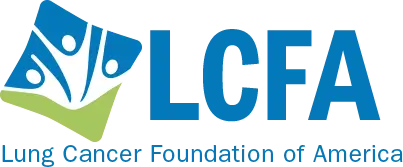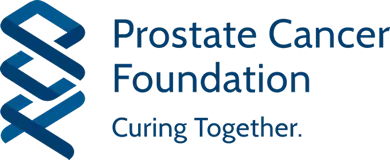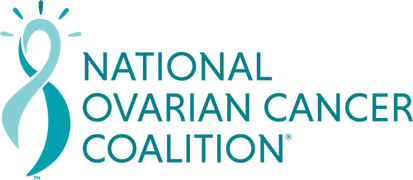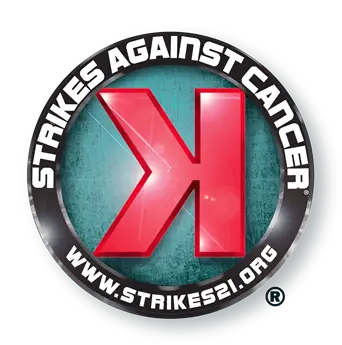Community Resources and Real Life Experiences
In the quiet storm of devastating news, we found ourselves grappling with emotions that words struggle to define. The moment cancer touched our lives, we were not just terrified; we were plunged into a realm of fear, anger, and a profound sense of being lost. Questions echoed in our minds like a haunting refrain: Will we lose them? Can our family weather this storm together? How do we find the strength to share this burden with our loved ones?
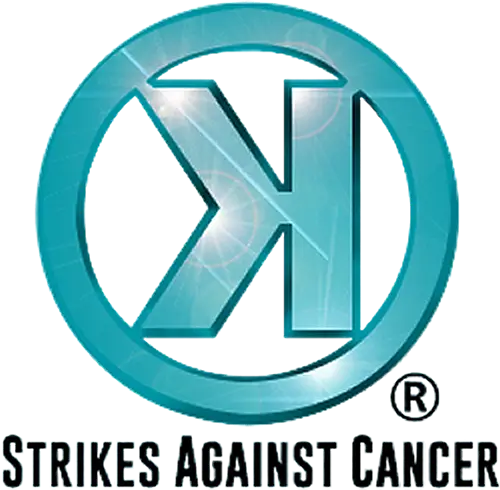
It was in these moments of vulnerability that the journey unfolded before us, a journey marked by uncertainty and an overwhelming flood of emotions. The questions multiplied, each one a plea for guidance. How does one navigate this uncharted territory as a family? Where does the journey of self-education begin? In the face of such adversity, how do we embark on a collective quest towards healthier living?
These questions, born out of the crucible of our collective experience, have shaped our mission. From the depths of our arduous journey with cancer, we’ve meticulously gathered real-life information – a lifeline we extend to our Cancer Families and Athletes. This isn’t just data; it’s a testament to the strength found in shared stories, the resilience that blooms in the face of adversity, and the hope that whispers, “You are not alone.”
Join us as we unravel the tapestry of our experiences, reaching out to touch the lives of those navigating the tumultuous seas of cancer. In the echoes of our stories, discover the guidance you seek, the camaraderie you long for, and the inspiration to turn fear into fortitude. Together, let us forge a path illuminated by shared knowledge, empathy, and the unwavering belief that, in the face of Cancer, We are United, We are Strong, and We are Resilient. We are Strikes Against Cancer.
What can you do to reduce your cancer risk?
These Lifestyle Choices
You’ve likely encountered sensational headlines like “The Cancer Prevention Diet!” or “Slash Your Risk of Cancer in Half in Just Minutes a Day!” But is it truly possible to mitigate your cancer risk through everyday choices?
While there’s no magic formula for cancer prevention or a “killer app” guaranteeing instant health, genetics undoubtedly play a significant role. Thus, even with a commitment to a healthy lifestyle, there remains a possibility of developing cancer.
However, experts suggest that lifestyle factors contribute to at least a third of adult cancer cases, offering a realm within your control.
Each healthy choice you embrace and every unhealthy habit you discard chips away at your cancer risk, making it less likely.
When should I tell my friends and family about my cancer?
Informing family and friends about a cancer diagnosis is a deeply personal journey, varying for each family. While some feel compelled to share immediately, others may prefer to wait until they’re ready. There’s no prescribed timeline for initiating these conversations.
For one family, the process involved educating a young son about his mother’s cancer battle. Initially associating cancer with death, the son gradually learned about survivors and the importance of supporting his mother. Tragically, despite a miraculous surgery, the cancer spread, leading to heart-wrenching conversations and eventual loss.
In another family’s experience, a sudden health concern led to the shocking diagnosis of cancer in their son. From ER visits to medical tests, the parents faced the unimaginable reality of their child’s illness. Amidst the whirlwind of emotions, they clung to faith and each other, navigating treatment decisions and the challenging road ahead.
In both cases, the news of cancer shattered their worlds, but their families’ unwavering strength and reliance on faith provided a guiding light. Despite the pain and uncertainty, they found solace in unity, facing the journey together with love and resilience.
Are there other organizations that can support me and my family during this journey?
Cancer Support Group Resource
Having cancer is often one of the most stressful experiences in a person’s life. However, support groups help many people cope with the emotional aspects of cancer by providing a safe place to share their feelings and challenges and learn from others who are facing similar situations.
Support groups offer the chance for people to talk about their experiences with others living with cancer, which can help reduce stress. Group members can share feelings and experiences that may seem too strange or too difficult to share with family and friends. And the group dynamics often create a sense of belonging that helps each person feel more understood and less alone.
Article Reference Credit: Cancer.net http://www.cancer.net/coping-and-emotions/managing-emotions/finding-support-and-information/support-groups
The American Cancer Society has programs and services to help people with cancer and their loved ones understand cancer, manage their lives through treatment and recovery, and find the emotional support they need. And best of all, our help is free. Follow the link to learn more about how we can help.
http://www.cancer.org/treatment/supportprogramsservices/index
Cancer Support Community has a global network of Education and Hope. Support For Those Affected By Cancer. … Online Support Groups … Learn more about the Cancer Support Community’s Cancer Experience Registry.
www.cancersupportcommunity.org/
The mission of Journey of Hope Grief Support Center is to provide support at no cost for children, teens, young adults and their families as they learn to mourn the death or impending death of their loved one in a safe, caring and nurturing environment.
What resources can help you once diagnosed with cancer?
General information on financial issues and insurance
A.M. Best Company Find insurance company ratings. www.ambest.com/
Agency for Healthcare Research and Quality (U.S. Department of Health and Human Services) Provides information on choosing a health plan. www.ahcpr.gov/consumer/
America’s Health Insurance Plans National directory of health insurance plans and information on types of coverage. www.ahip.org/
American Association of Retired Persons (AARP) Find detailed information on Medicare and other health insurance programs for people over 50. 888-OUR-AARP (888-687-2277) www.aarp.org/health
American Cancer Society – Taking Charge of Money Matters workshop Offers a series of booklets on financial topics for people living with cancer. 800-ACS-2345 (800-227-2345) www.cancer.org
Department of Health and Human Services Learn about the Affordable Care Act (health care reform). www.healthcare.gov/
Medicare (U.S. Department of Health and Human Services) Find information on the Medicare health insurance program, including prescription drug plans. www.medicare.gov
Medicaid Find your state’s Medicaid toll-free hotline. www.medicaid.gov
National Association of Insurance Commissioners Find your state’s insurance commissioner. www.naic.org/
National Cancer Legal Services Network (NCLSN) Find a directory of organizations that provide free legal help for people and families affected by cancer. www.nclsn.org
National Coalition for Cancer Survivorship Publishes the booklets “Working It Out: Your Employment Rights as a Cancer Survivor” and “What Cancer Survivors Need to Know About Health Insurance.” 877-NCCS-YES (877-622-7937) www.canceradvocacy.org
Patient Advocate Foundation Offers legal and advocacy help when disputing insurance claim denials and provides financial assistance information. 800-532-5274 www.patientadvocate.org
Health Care Assistance (medical care, prescription drugs and other medical items)
Cancer Resource Foundation Provides financial assistance for BRCA1/2 genetic testing for people who qualify. www.cancer1source.org/genetic-testing-programs
CancerCare – Co-payment Assistance Foundation Offers health insurance co-payment assistance to breast cancer patients undergoing some types of chemotherapy and targeted therapy. 866-55-COPAY (866-552-6729) www.cancercarecopay.org
CancerCare – Linking A.R.M.S.™ Provides limited financial assistance for some medications, medical equipment and lymphedema supplies. 800-813-HOPE (800-813-4673) http://www.cancercare.org/financial/information
Medicare (U.S. Department of Health and Human Services) Find information on Medicare prescription drug plans. www.medicare.gov
Myriad Financial Assistance Program Provides financial assistance for BRCA1/2 genetic testing for people who qualify. https://ms360.myriad.com/genetic-testing/insurance/
NeedyMeds.com Provides information on how to find pharmaceutical manufacturer assistance programs. www.needymeds.com
Patient Access Network (PAN) Foundation Provides financial assistance for prescription drug co-payments to people with metastatic breast cancer who qualify. www.panfoundation.org/
Patient Advocate Foundation – Co-Pay Relief Program Provides financial assistance for prescription drug co-payments to patients who qualify. 866-512-3861 www.copays.org
Patient Advocate Foundation –Financial Aid Fund Provides limited financial help for medical equipment, lymphedema care, transportation to and from treatment, child care and elder care during treatment, breast prosthesis and wigs. The Financial Aid Fund is a partnership between Susan G. Komen® and the Patient Advocate Foundation (PAF). 800-532-5274 www.patientadvocate.org
Partnership for Prescription Assistance (PPA) Offers low-cost and free prescription drug programs for those with limited income 888-4PPA-NOW (888-477-2669) www.pparx.org/
Social Security Administration Find your local social security office. www.ssa.gov/
Women’s Health and Cancer Rights Act (U.S. Department of Labor) Find information on federal laws requiring insurance coverage of breast reconstruction after mastectomy. www.dol.gov/ebsa/publications/whcra.html
Transportation Assistance
Local Transportation
American Cancer Society – Road to Recovery Provides local transportation to and from cancer treatments. 800-ACS-2345 (800-227-2345) www.cancer.org
CancerCare – AVONCares Program Provides limited financial assistance for transportation to and from cancer treatments. 800-813-HOPE (800-813-4673) http://www.cancercare.org/financial/information
CancerCare – Linking A.R.M.S.™ Provides limited financial assistance for transportation to and from cancer treatments. http://www.cancercare.org/financial/information
Patient Advocate Foundation – Financial Aid Fund Provides financial assistance for transportation to and from treatment. 800-532-5274 www.patientadvocate.org
Long-distance Transportation
Air Charity Network Offers air travel to treatment centers for cancer patients and their caregivers. 877-621-7177 www.aircharitynetwork.org
Corporate Angel Network Uses empty seats on corporate aircraft to help cancer patients reach treatment centers. 866-328-1313 www.corpangelnetwork.org
Lifeline Pilots Offers air travel to treatment centers for cancer patients and their caregivers. 800-822-7972 www.lifelinepilots.org/
Mercy Medical Airlift Offers air travel to treatment centers for cancer patients and their caregivers. 800-296-1217 www.mercymedical.org/
National Patient Travel Center Offers air travel to treatment centers for cancer patients and their caregivers. 800-296-1217 www.patienttravel.org
Lodging Assistance
American Cancer Society – Hope Lodge Provides lodging for families during cancer treatment. 800-ACS-2345 (800-227-2345) www.cancer.org/
Child care and elder care assistance
CancerCare – AVONCares Program Provides limited financial assistance for child care during treatment. http://www.cancercare.org/financial/information
CancerCare – Linking A.R.M.S.™ Provides limited financial assistance for child care during treatment. http://www.cancercare.org/financial/information
Patient Advocate Foundation –Financial Aid Fund Provides financial assistance for child care and elder care during treatment. 800-532-5274 www.patientadvocate.org
Clinical Trial Costs
American Cancer Society – Clinical Trials: State Laws Regarding Insurance Coverage Find a list of state laws on insurance coverage of clinical trial costs. www.cancer.org/
National Cancer Institute – States that Require Health Plans to Cover Patient Care Costs in Clinical Trials Find a list of state laws on insurance coverage of clinical trial costs. www.cancer.gov/clinicaltrials/
Why are blood transfusions needed by cancer patients?
People with Cancer might need Blood transfusions because of the cancer itself.
Cancer patients use nearly 1/4 of the blood supply – more than patients fighting any other disease – but only 3% of Americans donate blood in a given year. That’s why the American Red Cross and the American Cancer Society have teamed up to encourage people across the country to Give Blood to Give Time.
For example:
- Some cancers (especially digestive system cancers) cause internal bleeding, which can lead to anemia ([uh-nee-me-uh] from too few red blood cells; see “Red blood cell transfusions” in the next section).
- Blood cells are made in the bone marrow, the spongy center of certain bones. Cancers that start in the bone marrow (such as leukemias) or cancers that spread there from other places may crowd out normal blood-making cells, leading to low blood counts.
- People who have had cancer for some time may develop something called anemia of chronic disease. This anemia results from certain long-term medical conditions that affect the production and lifespan of red blood cells.
- Cancer can also lower blood counts by affecting organs such as the kidneys and spleen, which help keep enough cells in the blood.
Cancer treatments may also lead to the need for blood transfusions:
- Surgery to treat cancer may lead to blood loss and a need for red blood cell or platelet transfusions. (See “Red blood cell transfusions” and “Platelet transfusions” in the next section.)
- Most chemotherapy drugs affect cells in the bone marrow. This commonly leads to low blood cell counts, and can sometimes put a person at risk for life-threatening infections or bleeding.
- When radiation is used to treat a large area of the bones, it can affect the bone marrow and lead to low blood cell counts.
- Bone marrow transplant (BMT) or peripheral blood stem cell transplant (PBSCT) patients get large doses of chemotherapy and/or radiation therapy. This destroys the blood-making cells in the bone marrow. These patients often have very low blood cell counts after the procedure and need transfusions.

Why is protein important when a person is fighting cancer?
Good Nutrition is important for Cancer Patients.
Nutrition involves the intake and utilization of food by the body for growth, maintenance of health, and tissue replacement. Optimal nutrition is crucial for overall well-being. Consuming appropriate foods before, during, and after cancer treatment can aid in enhancing the patient’s well-being and resilience. A balanced diet entails consuming sufficient quantities of foods and beverages rich in essential nutrients such as vitamins, minerals, protein, carbohydrates, fats, and water.
When the body lacks or cannot absorb essential nutrients, it results in a condition known as malnutrition or malnourishment. Cancer and cancer treatments may disrupt nutritional intake. Surgery, chemotherapy, radiation therapy, immunotherapy, and stem cell transplants are among the cancer treatments that can affect nutrition.
Calorie and protein requirements vary for each individual. As a rough guideline, aim to consume 25 to 35 calories per kilogram of weight (1 kilogram equals 2.2 pounds). The recommended daily allowance for protein ranges from 45 to 60 grams per day. It is essential to discuss individual calorie and protein needs with a healthcare provider or registered dietitian. Some cancers can lead to a condition called hypermetabolism, altering how the body utilizes proteins, fats, and carbohydrates. In such cases, increasing calorie and protein intake may be necessary, and it’s advisable to consult with a healthcare provider or registered dietitian.
Proteins are essential for growth, tissue repair, and maintaining a healthy immune system. Inadequate protein intake may lead to muscle breakdown, delayed recovery from illness, and reduced resistance to infection. Individuals with cancer often require more protein than usual, especially after undergoing surgery, chemotherapy, or radiation therapy.
Good sources of protein include fish, poultry, lean red meat, eggs, low-fat dairy products, nuts and nut butters, dried beans, peas and lentils, and soy foods.
Here are some tips to increase calorie and protein intake:
- Consume several small, frequent snacks throughout the day instead of three large meals.
- Enjoy your favorite foods at any time of the day.
- Eat every few hours and avoid waiting until hunger strikes.
- Prioritize high-calorie, high-protein foods at each meal and snack.
- Engage in light exercise or take a walk before meals to boost appetite.
- Consider consuming high-calorie, high-protein beverages like milkshakes and canned liquid supplements.
- Drink most fluids between meals rather than with meals to avoid feeling too full.
- Experiment with homemade or commercially prepared nutrition bars and puddings.
MILK or Chocolate MILK it’s Natures Replenishment Goodness!
Replenish your body with proper Nutrition for Cancer Patients and Athletes’!
Milk is a natural source of high-quality protein, packing eight grams per 8-ounce glass, ideal for building lean muscle and maintaining bone strength. Health experts now advocate for 25 to 30 grams of protein per meal, particularly at breakfast, to promote satiety and prevent mid-morning cravings. Starting your day with a glass of milk can help you achieve this protein target.
Moreover, did you know that each 8-ounce serving of milk provides 10% of your daily potassium requirement, equivalent to a small banana? Potassium plays a vital role in fluid balance and blood pressure regulation. Additionally, milk is rich in vitamin B12, essential for red blood cell production and nerve health, fulfilling 20% of your daily B12 needs in one serving. This nutrient powerhouse is also associated with reducing the risk of age-related macular degeneration and supporting healthy hair, skin, and nails.
Furthermore, milk supplies 10% of your daily vitamin A requirement, crucial for immune function, vision, and growth. It’s also a significant source of phosphorus, promoting bone health and muscle function, accounting for 25% of your daily phosphorus needs in a single serving. Niacin, or vitamin B3, found in milk, aids in energy metabolism, cholesterol regulation, and brain function, with an 8-ounce glass providing 10% of your daily niacin requirement.
Considering post-workout recovery, chocolate milk emerges as a beneficial option due to its protein content. Research suggests that chocolate milk consumption after exercise aids muscle recovery, providing 8 to 11 grams of protein per cup. Its carbohydrate content replenishes energy stores, while the high water content helps prevent dehydration. Moreover, chocolate milk offers calcium, vitamin D, sodium, and sugar, crucial for hydration and energy replenishment.
For cancer patients, protein is essential for tissue repair and immune function, with milk serving as a valuable protein source. After cancer treatments, increased protein intake is often necessary to aid healing and combat infections.
Embrace the power of milk—whether white or chocolate—as a nutritional powerhouse supporting an active lifestyle and aiding recovery post-therapy. Strikes Against Cancer advocates for milk consumption and encourages support for American dairy farmers. For more dairy facts, visit https://dfamilk.com and https://www.drink-milk.com.
Is Chocolate acceptable, OK, & healthy for Cancer Patients?
Chocolate Goodness: To Indulge or Not?
Chocolate: To Indulge or Not?
Studies suggest that certain types of chocolate may offer health benefits. Chocolate contains flavonoids, a phytochemical found in cocoa beans, known for their antioxidant properties, potentially aiding in the prevention of cell damage by free radicals and, consequently, cancer prevention. Research indicates that cocoa and its polyphenols may interfere with cancer initiation, promotion, and progression. Moreover, cocoa has shown promise in reducing colon inflammation, a significant factor in colorectal cancer development.
However, not all chocolates are created equal. To maximize flavonoid intake, opt for dark chocolate, containing at least 60% cocoa with minimal added sugar. The American Cancer Society recommends high-quality dark chocolate with at least 70% cocoa content. Avoid chocolate varieties with additional ingredients like caramel or peanut butter.
Dark chocolate not only combats cancer but is also believed to reduce the risk of heart attacks and strokes, enhance brain blood flow, and alleviate symptoms of depression. Enjoy a dark chocolate treat in moderation to reduce inflammation and protect cells from damage. Consider pairing it with a glass of red wine for a double dose of antioxidants.
Maintaining a Healthy Relationship with Chocolate
For many, the relationship with chocolate is complex. Despite its potential benefits, guilt often accompanies indulgence in this beloved treat. Research suggests that viewing chocolate positively, associating it with celebration rather than guilt, can lead to successful weight management and improved overall well-being.
Instead of labeling chocolate as forbidden, embrace it mindfully. Enjoy it purposefully, without guilt, and consider the context of consumption. Moderation is key—savoring a square of dark chocolate daily and indulging on special occasions fosters a balanced approach to chocolate consumption.
Benefits of Dark Chocolate
Dark chocolate, in particular, boasts numerous health benefits. Rich in antioxidants like flavanols, it enhances heart health, bolsters the immune system, and may combat diabetes. Additionally, flavanols improve brain function, boost athletic performance, and alleviate stress.
Choose dark chocolate with a cocoa content of at least 70% for optimal health benefits. Monitor calorie, fat, and sugar content, and be mindful of potential triggers like acid reflux or migraines.
In conclusion, dark chocolate can be a delightful addition to a balanced diet. Enjoy it guilt-free and in moderation, relishing its health-boosting properties while maintaining a positive outlook on indulgence. If struggling with food-related issues, seek guidance from a qualified health professional.
Smokeless Tobacco Statistics and the Nutritional Alternative: Sunflower Seeds
Smokeless Tobacco Statistics and the Nutritional Alternative: Sunflower Seeds
According to the Centers for Disease Control and Prevention, approximately 2.1% of adults aged 18 or older, totaling 5.2 million adults, reported current use of smokeless tobacco products in the United States.
The average starting age for smokeless tobacco use is concerning, with individuals trying it as early as 12.6 years old. One of the significant health risks associated with smokeless tobacco is the development of white or gray patches inside the mouth, known as leukoplakia, which can lead to cancer. Additionally, smokeless tobacco can contribute to gum disease, tooth decay, and tooth loss.
Youth tobacco product use is particularly worrisome, as tobacco use is typically initiated during adolescence. Flavorings in tobacco products can make them more enticing to young people, with a significant percentage of high school and middle school students reporting the use of flavored tobacco and e-cigarette products.
As an alternative choice, sunflower seeds offer a nutritious snack option rich in vitamin E and antioxidants. These seeds support healthy skin, boost immune function, and promote heart health. They are also packed with essential minerals that contribute to improved bone health and overall well-being, including zinc, which supports immune function and acts as an antioxidant.
Studies have shown that regular consumption of seeds, including sunflower seeds, is associated with lower rates of cardiovascular disease, high cholesterol, and high blood pressure. Moreover, sunflower seeds support the immune system, aiding in the body’s ability to fight off viruses. They are also beneficial for detoxification due to their high magnesium content, which helps eliminate toxins from the body and may assist in managing blood pressure levels.
For nearly a century, DAVID® Sunflower Seeds has been a trusted brand known for its quality and care. Their whole roasted seeds are free from certified synthetic color or artificial flavors and are roasted and seasoned in the USA. For more information, visit https://www.davidseeds.com/our-story.
Life Insurance, Financial Protection for your Family.
Life insurance, whether in the form of whole life or term insurance, can offer invaluable benefits to cancer patients and their families in the long term.
Life insurance proved to be a lifeline for our family, safeguarding our home and providing financial stability after the loss of a family member. Without it, we would have faced the daunting prospect of losing everything – our home, car, and possessions – compounded by the relentless wave of medical bills following the passing of our beloved. Countless stories serve as cautionary tales of families left financially destitute due to a lack of preparation and protection for their loved ones.
Here’s how life insurance can provide crucial support in such challenging situations:
Financial Protection: Life insurance serves as a financial safety net for the family in the event of the insured’s death, ensuring they have the means to cover immediate expenses and maintain their standard of living.
Income Replacement: For families reliant on the income of the cancer patient, life insurance can replace lost income, particularly if the patient was the primary breadwinner.
Covering Medical Expenses: Life insurance can help cover costly medical treatments or debts incurred during the course of cancer treatment, easing the financial burden on surviving family members.
Debt Repayment: Proceeds from life insurance policies can be used to settle outstanding debts, including mortgages, loans, or credit card balances, providing financial relief for survivors.
Education Funding: Life insurance can be designated to fund educational expenses for children or dependents, ensuring financial resources are available for their future well-being.
Whole Life Insurance Cash Value: Whole life insurance policies accumulate cash value over time, which can be accessed by the policyholder to cover medical expenses, alternative treatments, or other financial needs.
Estate Planning and Inheritance: Life insurance simplifies estate planning by transferring wealth to beneficiaries, preserving the family’s financial legacy, and providing for future generations.
Business Continuity: Life insurance is vital for business owners or partners, facilitating business continuity by providing funds to buy out a deceased partner’s share or settle business debts.
Charitable Contributions: Life insurance policies can support charitable causes, allowing individuals to make contributions to organizations they care about even after their passing.
Peace of Mind: Having life insurance in place offers peace of mind to cancer patients and their families, alleviating financial concerns and enabling them to focus on emotional and practical aspects of dealing with the illness.
Cancer patients should carefully evaluate and select life insurance policies based on their specific needs, consulting with financial advisors to tailor plans to their circumstances. It’s also essential to seek legal advice when creating or updating a will to ensure it accurately reflects their wishes and complies with relevant laws and regulations.
For valuable financial guidance and support, Primerica has been a trusted resource for our family.
For more information, please contact: Regina Doby, REGIONAL VICE PRESIDENT Email: rdoby@primerica.com Address: 2550 Belle Chase Hwy Ste 110. Gretna, LA 70053 Office: 866-985-1666 Website: https://www.primerica.com/public/

Homesteading Your House: Cancer Patients, and Family Members, Protect Your Home from the Bankruptcy Courts.
Establishing a homestead for your home can provide a crucial level of security in the face of financial difficulties, including those stemming from the passing of a loved one and mounting medical bills. Homesteading involves declaring your property as a homestead, a process that carries legal and financial implications dependent on your jurisdiction.
Our homestead exemption was a beacon of hope when the Bankruptcy Court threatened to take our home. Enduring a relentless onslaught of medical bills over two years, we faced bankruptcy. With the guidance of an exceptional Bankruptcy Attorney, we navigated through the ordeal. Here’s how homesteading can offer assistance in such dire circumstances:
Protection of Home Equity: Homesteading typically safeguards a portion of home equity from creditors, ensuring that some value of your home remains protected during financial crises or bankruptcy, offering a degree of stability for your surviving family.
Shelter from Forced Sale: Homestead laws often prohibit the forced sale of a homestead property to settle unsecured debts like medical bills. This protection allows the surviving spouse, family, or dependents to reside in the home without fear of losing it to creditors.
Rights of Surviving Spouse and Dependents: Homestead laws prioritize the rights of surviving spouses and dependents, allowing them to continue living in the homestead even if it’s subject to debts, ensuring a stable living environment.
Preservation of Shelter: Homesteading aims to preserve the family’s primary residence, offering a sense of security amidst financial challenges resulting from a loved one’s passing and medical expenses, ensuring they have a place to call home without the threat of displacement.
State-Specific Exemptions: Homestead exemptions vary by state, with some states providing more generous protections. Understanding your state’s laws is crucial for maximizing homestead benefits, necessitating consultation with a legal professional well-versed in state-specific regulations.
Asset Protection: Declaring a homestead shields your home as a crucial asset, safeguarding it from certain creditors and legal actions during financial turmoil, thereby providing a foundational asset that remains protected.
Preventing Homelessness: Homestead protection prevents families from facing homelessness due to financial challenges, ensuring they retain a place to live despite significant debts.
Planning for the Future: Homesteading is often part of a comprehensive financial planning strategy, allowing individuals to proactively safeguard their home against the risk of loss during times of financial distress.
It’s vital to recognize that homestead laws vary, and not all jurisdictions offer the same level of protection. Seeking guidance from a knowledgeable attorney specializing in estate planning and bankruptcy in your state can offer tailored advice based on your situation. Additionally, homesteading may not exempt all types of debts, underscoring the need for professional advice in comprehensive financial planning.
Get WILL! Avoid the 11 Years of Family Chaos and Greed that we sustained.
Drafting a will, a legal document outlining one’s wishes regarding property distribution and dependents’ care after death, can be invaluable for cancer patients and their families for various reasons:
Clarity of Wishes: A will enables cancer patients to clearly express their desires regarding asset distribution, averting potential family disputes and offering reassurance to the patient.
Guardianship for Dependents: Crucial for patients with dependents, a will appoints guardians for minor children, ensuring a clear plan for their care and avoiding court intervention, which may cause distress.
Financial Planning: Wills specify asset management and distribution, vital for covering medical expenses, ongoing treatments, and the financial stability of surviving family members.
Healthcare Directives: While primarily post-mortem, wills can include healthcare directives and living wills to outline medical treatment preferences, guiding family and healthcare providers.
Ease of Probate: A well-crafted will streamlines the probate process, expediting asset distribution and reducing stress for grieving families.
Asset Protection: Planning for expensive cancer treatments, wills facilitate asset protection through trusts or other mechanisms, ensuring their optimal use for family benefit.
Charitable Contributions: Some patients may wish to make charitable donations, and wills allow for instructions on contributions to specific causes or organizations.
Avoiding Intestacy Laws: Without a will, assets are distributed according to intestacy laws, potentially conflicting with the patient’s wishes. A will grants control over asset distribution.
Consulting legal professionals ensures the will accurately reflects the patient’s wishes and complies with laws. Periodic reviews, especially after significant life changes, maintain its relevance.
For exemplary legal support, our family found Ferguson Braswell Fraser Kubasta PC Law Firm invaluable. Voted Best Lawyers | Best Law Firm in US News 2023. Contact: (972) 378-9111 | Address: 2500 Dallas Parkway, Suite 600, Plano, Texas 75093 | Website: www.fbfk.law

Want a Healthier Life? Natural Cures, Not Medicine.
Consuming a minimum of five servings of fruits and vegetables daily is a cornerstone of an anti-cancer diet, a proactive approach to reducing cancer risk. According to the American Cancer Society, incorporating this dietary practice, along with maintaining a healthy weight, can significantly contribute to cancer prevention. Additionally, certain foods have shown promising potential in protecting against cancer development.
Garlic: Numerous studies indicate that individuals who consume higher amounts of garlic have a lower risk of developing various cancers, particularly those affecting digestive organs like the esophagus, stomach, and colon. Compounds found in garlic may inhibit cancer-causing substances or impede cancer cell proliferation.
Berries: Beyond their delightful taste, berries are packed with potent antioxidants that can neutralize harmful free radicals, protecting cells from damage and potentially preventing cancer growth or spread.
Tomatoes: Research suggests that tomatoes, rich in the antioxidant lycopene, may offer protection against prostate cancer in men. Lycopene helps safeguard DNA integrity and may be more effectively absorbed from processed tomato products like sauce.
Cruciferous Vegetables: Broccoli, cabbage, and cauliflower, among others in this group, contain compounds that shield cells from DNA damage, inhibit tumor growth, and promote cancer cell death, making them a valuable addition to an anti-cancer diet.
Green Tea: Abundant in antioxidants called catechins, green tea has demonstrated potential in preventing cancer by combating free radical damage and inhibiting tumor growth in laboratory studies.
Whole Grains: Incorporating whole grains into your diet, such as oatmeal, brown rice, and whole-wheat products, may lower the risk of colorectal cancer due to their fiber and antioxidant content.
Turmeric: The active ingredient in turmeric, curcumin, exhibits anti-cancer properties by inhibiting certain cancer cell types’ growth and spread, as demonstrated in laboratory and animal studies.
Leafy Green Vegetables: Spinach, lettuce, and other leafy greens are rich in beta-carotene and lutein, antioxidants that may limit the growth of certain cancer cells, according to research.
Grapes: Red grapes, particularly their skin, contain resveratrol, an antioxidant associated with reducing cancer initiation or progression, as indicated by laboratory studies.
Beans: Often overlooked, beans are excellent sources of antioxidants and fiber, contributing to an anti-cancer diet’s effectiveness.
Lemons are another potential ally against cancer, particularly due to their high terpene content like d-limonene, which has shown anticancer effects in studies. Additionally, cannabis oil, derived from cannabis leaves, contains compounds like CBD that exhibit promising anticancer properties.
While the mechanisms behind these foods’ cancer-fighting abilities are still being elucidated, incorporating them into your diet can offer numerous health benefits beyond cancer prevention.
As always, consult with healthcare professionals for personalized guidance and recommendations tailored to your specific health needs and circumstances.
Strikes Against Cancer
Partners








